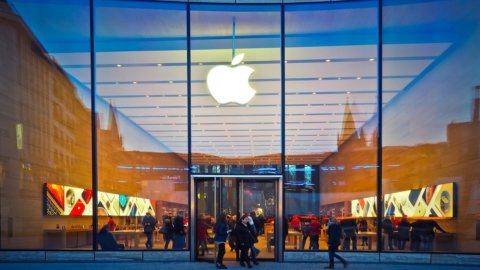Bitcoin is a “highly speculative asset,” but it is not up to the Federal Reserve to intervene to regulate cryptocurrency trading. Word of Janet Yellen, who yesterday held her last press conference as president of the American Central Bank. You did so at the end of the FOMC meeting which raised interest rates to 1,25-1,50%.
In short, the Fed “has no role in terms of regulation” on Bitcoin, Yellen assures. And in fact yesterday the telematic currency closed down at 16.650 dollars, a value much lower than the peaks reached in the previous sessions, up to above 19 thousand dollars. At the beginning of the year, we recall, the exchange rate was just 966 dollars.
FOR 96% OF EXPERTS IT IS A SPECULATIVE BUBBLE
Faced with such numbers, experts have no doubts: the Bitcoin rally is the result of pure speculation. That's what the majority of respondents to a Wall Street Journal poll think. 96% of the sample - made up of university professors and economists - believe that a speculative bubble has inflated on cryptocurrency.
Many of the respondents drew a comparison with the first speculative bubble in history: the famous tulip craze of the 17th century, which created a boom in flower prices and a subsequent bubble burst in early 1637.
OK TO SHORT SALES
Meanwhile, Bitcoin, which has recently made its debut on the futures market Cboe, is preparing to collide with short selling. Interactive Brokers, the largest digital currency futures broker, will allow its customers to bet against the digital currency, including holding short positions. Thomas Peterffy, president of the company, told the Financial Times.
Interactive handled 53% of Bitcoin futures trading volume during its debut session at the CBOE on Dec. 10. The broker's decision could affect futures trading not only at the Cboe, but also at the CME Group, where they will debut next week, if all goes as planned.
“We understood that we had to make this decision,” Peterffy said, explaining that so far those who wanted to place speculative bets had to do so through other brokers. The president of Interactive had criticized Bitcoin when it began to climb above $1.700 and unsuccessfully asked regulators that clearinghouses be set up specifically for Bitcoin futures, in order to avoid any negative fallout on derivatives brokers .
Now he has had to adapt to market demands, but he has taken precautions to prevent Interactive from being exposed to excessive losses: investors who sell Bitcoin short will have to deposit five times the value of their futures contracts as a hedge, which will make the negative bets much more expensive than long positions.
BITCOIN BANNED TO SOUTH KOREAN BANKS
On the international front, South Korea has banned its financial institutions from using virtual currencies like Bitcoin. A sensational decision, given that the cryptocurrency has been very successful in the Asian country, to the point that around 20% of global transactions take place here on virtual currency.
Nearly one million South Koreans, especially small investors, hold Bitcoin and demand is so strong in this country that prices for this virtual currency are 20% higher than those in the United States, the world's largest Bitcoin market
The announcement of the ban by the government caused a nearly 5% decline in Bitcoin on Bithumb, the largest market for this currency in South Korea. The prime minister's office said that even the bitcoins issued by the companies they were banned. However, bitcoin transactions remain authorized in the country and no special tax has been decided on profits made in virtual currencies.
Read also:
Bitcoin, the ghost that prowls the world: that's what it is by Giovanni Ferri
Bitcoin, all the strengths and weaknesses of cryptocurrencies – by Alessandro Fugnoli





